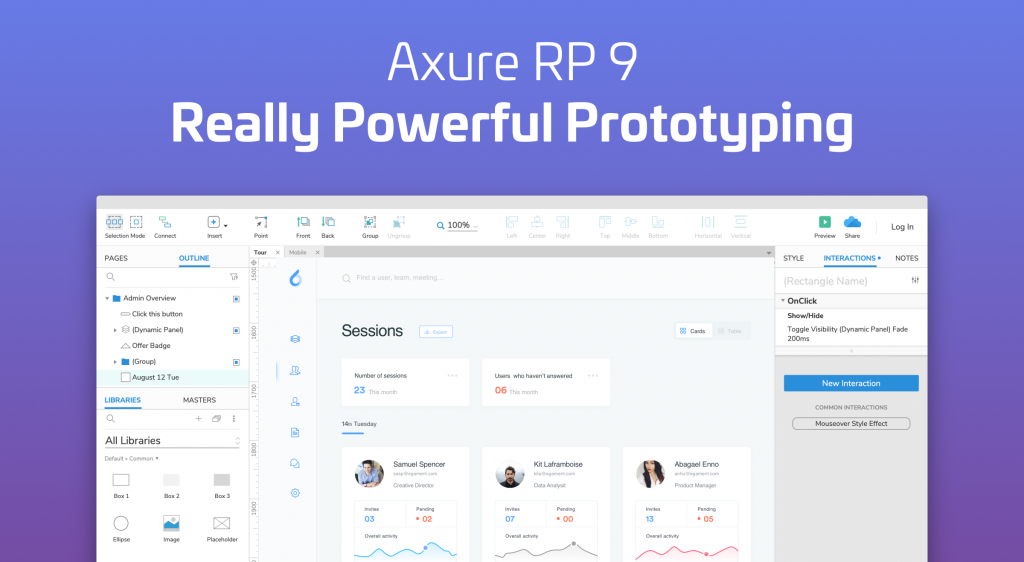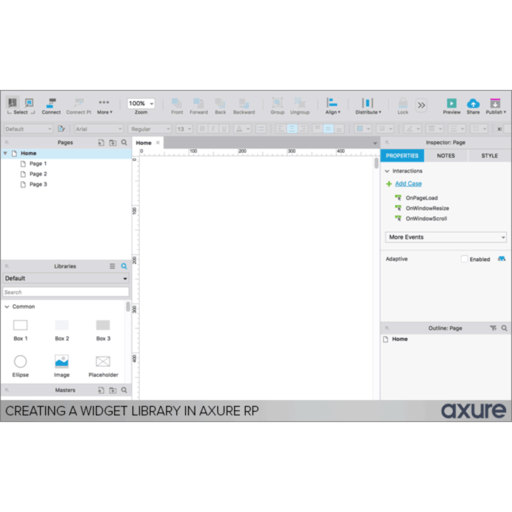

It's much easier to point to a component and write something about it than play guess-the-component when the client and ourselves may have different names for the same thing. It was important to us that our clients would be able to access projects easily and add comments within the app instead of having to provide feedback elsewhere. (Development for this feature is currently backlogged for Adobe XD.)

With this (painful) memory fresh in our minds, we looked for an app that supported microinteractions, allowing things like dropdown toggling to be easily handled. Unfortunately, for something as simple as toggling a dropdown on and off, an entirely new artboard had to be created for every change in state, which meant any changes to content or interactions on other pages had to be duplicated over and over again and finding the right screen required a lot more scrolling than it should have. On a live website, all of these different views would be visible from the same page, and ideally, that's how it would work for a prototyping tool as well.
Different search categories had unique filters, each mega-menu was unique, and each search had its own user flow. Shortly before commencing these reviews, one of our designers built a complex lo-fi wireframe for a multi-faceted search and new mega-menu for one of our clients using Adobe's app, Adobe Experience Designer (XD). For this reason, we awarded bonus points if the app could directly import Photoshop files with its layers included. Later on in a website's development, we create high-fidelity prototypes using our Photoshop files to simulate interactions as they would behave on the live site. For these low-fidelity wireframes, we wanted easy access to shapes, text, and a library of common components like buttons and form elements that could be shared across projects. To keep the focus on these areas, our wireframes generally do not include styles, colour, or imagery. For our purposes, we define a wireframe as a simplified visual representation of a website's layout that focuses on content prioritisation and user flow, including movement between the site's templates.


 0 kommentar(er)
0 kommentar(er)
